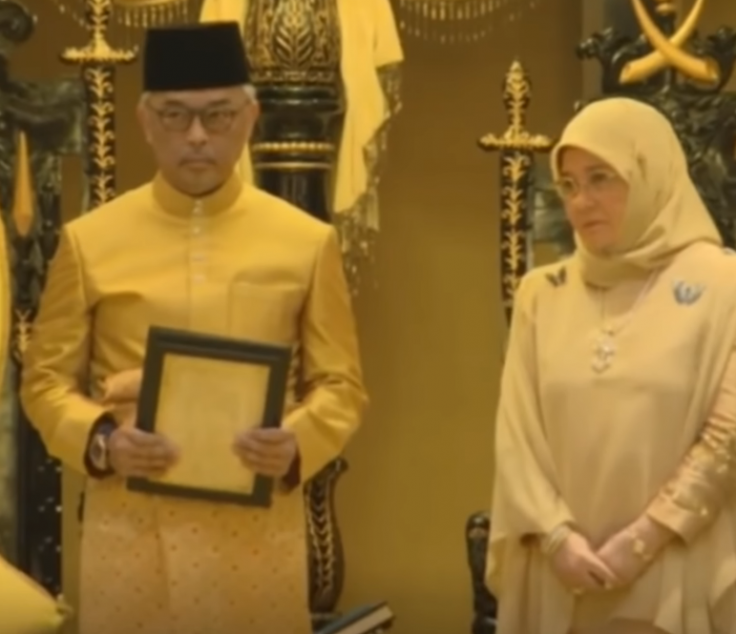
Sultan Abdullah Sultan Ahmad Shah of central Pahang state was crowned as the 16th king of Malaysia on Thursday, January 31. He will now serve as the king of the nation for the next five years.
Dressed in aqua blue, Sultan Abdullah received a state welcome at the Parliament Square, and Prime Minister Mahathir Mohamad and Deputy Prime Minister Wan Azizah Wan Ismail were also present at the venue.
The new king received a 21-gun salute and inspected the main guard-of-honour by the 1st Battalion Royal Malay Regiment, after which he took oath. The Sultan of Perak, Sultan Nazrin Shah, also took the oath as the deputy king of Malaysia, reported the official Bernama news agency.
The 59-year-old king's swearing-in comes about a month after Sultan Muhammad V abruptly resigned as the king on January 6. While royal watchers believed that Sultan Abdullah's father would take office, the senior sultan's ill-health paved the way for Sultan Abdullah to take over as the king. He was then elected by eight other Malay sultans in the Conference of Rulers.
What We Know About Sultan Abdullah
Sultan Abdullah, born on July 30, 1959 at Istana Mangga Tunggal, is the fourth child and eldest prince of Sultan Ahmad Shah and the late Tengku Ampuan Afzan Tengku Muhammad. He attended school in Malaysia and then received education in Britain.
He then joined the The Royal Military Academy Sandhurst (1978-79), Worcester College and Queen Elizabeth College (1980-81), where he received a diploma in international relations and diplomacy.
Sultan Abdullah is known to be a sports enthusiast and is a council member of the Asean Football Federation (AFF). A FIFa executive committee member, he also served as president of the Football Association of Malaysia (FAM) between 2014 and 2017. As per a Bernama report, the king also plays football and polo.
Sultan Abdullah is married to 59-year-old TunkuAzizah Aminah Maimunah Iskandariah and the couple has nine children — four sons and five daughters.
Trivia On Malaysian Monarchy
Malaysia is known to have a unique tradition of constitutional monarchy. The king of the nation is chosen on a rotational basis and the country's royal household — from nine states — take turns to rule Malaysia for a term of five years.
For those five years, the king is not just the head of state, but also acts as the commander-in-chief of the armed forces. The system was agreed upon in 1957, when Malaysia secured independence from Britain.
From 1874, as the British brought the Malay states under colonial rule, rather than abolish the monarchy state by state, they found it more effective to ensure that the royal families continued to have a place in the system that they created," Amrita Malhi, a visiting fellow at the Coral Bell School of Asia Pacific Affairs at the Australian National University in Canberra, told Al Jazeera.
"When these states were brought together in the Federation, and later, when Malaya achieved its independence, all these separate monarchies had their place preserved."
Explaining the idea behind this tradition, Lim Wei Jiet, a constitutional lawyer added: "The idea was that none of them would be superior to the other."
Even though it is known that the monarch is chosen from the nine states, the rulers follow a specific process of appointment. The states that do not have royal households do not play any role in the election and the rulers of the nine states, through a Conference of Rulers, choose the monarch once every five years.
Using an unnumbered ballot paper and an identical pen, each sultan votes on whether the first name on the candidate list is suitable or unsuitable for the position of the king. If that names fails to get a minimum of five votes, then the process moves on to the next name. Several factors are taken into account, including ill-health.
"Over the past 60 years, they have been very respectful of this rotational system," Lim told Al Jazeera.









